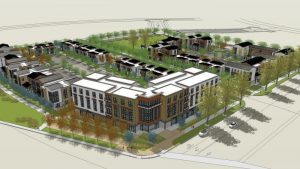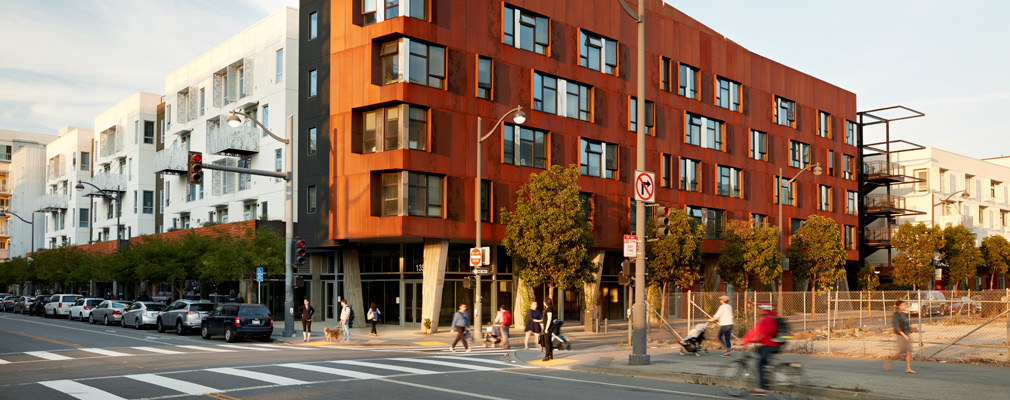
Chuck Reed. (Hopkins & Carley)
State Government In the Way of California Cities and New Housing Goals
‘The state is mostly trying to use a stick to make local government build housing’
By Katy Grimes, December 11, 2019 2:29 pm
When it comes to building new housing in California, cities and counties are hindered by an overwhelming labyrinth of state mandates and regulations. California falls short by more than 100,000 housing units each year, and is currently 1 million housing units short. “Production averaged less than 80,000 new homes annually over the last 10 years, and ongoing production continues to fall far below the projected need of 180,000 additional homes annually,” according to the California Department of Housing.
Consequently, in 2019, the state attempted to further regulate the housing shortage issue through Senate Bill 50: the More HOMES Act (Housing, Opportunity, Mobility, Equity, and Stability) by Sen. Scott Wiener (D-San Francisco). The legislation would have ordered cities to build more housing around transit and job centers. SB 50 also would have authorized single family dwellings in residential neighborhoods to be converted into duplexes and fourplexes, or replaced with multi-unit housing.
SB 50 was not popular with many cities. While some in the Legislature argued it was a solution, not many representatives want their cities to look or feel like San Francisco, as the bill’s author clearly modeled the legislation on.
California Globe spoke with former San Jose Mayor Chuck Reed, who has been dealing with housing issues for nearly 30 years. Reed said he has participated in at least 1,000 hearings about housing projects in his three decades as an attorney and member of the San Jose City Council and Mayor.

“As Mayor, we always struggled to get more housing projects approved,” Reed said. While he says the state has made some steps in the right direction on housing, “it’s extremely small – a one percent solution, and is mostly trying to use a stick to make local government build housing.”
The conclusion is that the state structure makes it difficult for local governments to do housing.
Chuck Reed said there are four-factors to California’s housing crisis:
- Fiscal Factor: More people mean more services needed in an area with expanding housing. Reed says developers prefer commercial projects over housing because of the state regulations and potential for lawsuits. Cities prefer commercial projects as well because of the larger taxes coming in, and fewer hassles with the state.
- Legal Factors: This means asking how easy it is for one person or a group to create problems under the California Environmental Quality Act, especially in affordable housing projects. Builders/developers even likely to propose affordable housing projects will get sued.
- Economic Factors: Jobs generate tax revenues. Reed says that 90 percent of cities have economic development plans but not housing plans.
- Moral Factors: The economy needs housing to grow. But the moral and economic arguments are not strong enough to overcome.
Reed says the state needs to change the equation.
In his first 10 months in office, Gov. Gavin Newsom approved $1.75 billion in new state spending on various housing programs. Recently Gov. Newsom also met with a group of technology giants who pledged $4.5 billion toward more housing in California.
“While the state is putting money into it, building housing has become so expensive,” Reed said. It will cost $400,000-$500,000 of subsidies per housing unit before even breaking ground. Reed says $4.5 billion doesn’t go very far.
In fact, $4.5 billion covers only 9,000-10,000 new housing units. In a state that falls behind 100,000 housing units each year, while it is something, it doesn’t go far enough. “10,000 units may be good for San Francisco,” but it’s not much of a dent in the total housing need.
As for SB 50, “It ordered local governments to do it… but it’s better than doing nothing.” Reed said even with the concept of SB 50 and its successor, “not much has happened. I would support it, but it’s not likely to be effective.”
“We need to change the incentive structure,” Chuck Reed says. “And we need to get the private sector to do it. The key is getting the private sector to be able to do their business and build housing.”
Reed suggests:
- Reduce the legal risks to approving housing projects. “Specifically, we need to eliminate private causes of action,” Reed says. “You wouldn’t let one person in a homeowners association dictate the outcomes, so why do we allow this with home building?”
- Have the state provide the fiscal incentive with local governments to at least be able to break even.
“Housing is a negative – we need it to be a positive again,” Reed said. “We need to change the incentive structure. And while the state regulations imposed on cities can be helpful, in many cases instead of doing fourplexes, these regulations cause a builder to do duplexes or single family homes.”
Reed notes, “local governments have 100 ways to get around building more housing, instead of actually building housing.”
Reed also addressed local control, and local elected officials. “The people who live there vote there. Those officials represent those voters, who don’t want more kids in the schools, or more cars and traffic on their streets, or more tent cities.” Reed also said with a significant amount of new housing going in to one area, property values go down, which is also a factor when local officials are considering housing. “Local voters have a vested interest in less housing – their own home values.”
“This is why the equation must be changed,” Reed said.
As California Globe reported in January, there are 50 cities on the list not addressing the housing crisis as the state has mandated, yet Gov. Newsom singled out Huntington Beach for a lawsuit on its lack of affordable housing.
“Huntington Beach and 50 other cities are out of compliance because they don’t have a current/compliant affordable housing element in their general plan. What’s lost in this mandate. is that even if the cities were ‘in compliance,’ there’s no requirement in the legislation to build,” the Globe reported.
“Additionally, cities don’t build houses, developers do. With all the regulatory and licensing obstacles in place, developers already have difficulty building in California, much less ‘affordable housing.’ The estimate of city/county/state fees and licensing costs is $100,000 per home, before ground is even broken, depending on the region.”
2019 has been a rollercoaster for affordable housing in California, with very little progress. Chuck Reed’s recommendations could actually move the needle and get more housing units built without lawsuits as Huntington Beach is going through.
As the former Mayor of San Francisco, Governor Newsom likely understands first hand how difficult building more affordable housing is. Newsom campaigned on a pledge to build 3.5 million new housing units within seven years to address an affordable housing crisis. The state will need to step up its game and change its mindset if even 1.7 million homes — half of 3.5 million — are to be built.
- While Newsom Fiddles, California’s Gas & Oil Crisis Ramps Up with Tensions Between the US and Iran - February 22, 2026
- Trump Responds, Issues Global 10% Tariff on all Countries - February 21, 2026
- What is Trump’s Plan B After Supreme Court Strikes Down Tariffs? - February 20, 2026




